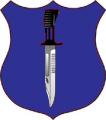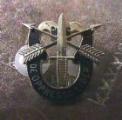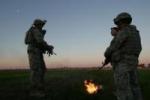Hi Bob,
A lot to consider....
On the whole, i would agree with you on that take. "Government" is a recent invention, say 10-12 kya, and one that many people still dislike.
NB: What follows is me playing academic Devil's Advocate
Hmmm, I think this is too limited in a number of ways.
First, using a scale for "poor - good governance" implies that there is a singular model on which this can be tracked and rated. Not all "poor governance" is despotism and not all despotisms are poorly governed. I don't think there is, and I believe that the assumption that there is has caused a lot of problems in the current conflicts in both Iraq and Afghanistan.
Second, even if we restrict our definition of "violence" to person on person kinetic conflict, different cultures (not societies) have quite different definitions of acceptable levels and types of violence. We (North Americans) may not consider honour killings as "acceptable violence", but some cultures do. We (Canadians this time) don't accept the level of violence prevalent in most major American cities - does that mean that the US suffers from "despotism" (note, I didn't say "poor governance", especially in light of people's apparent views of Congress

)?
Basically, I think that your "violence" scale is flawed and your "governance" scale is way too limited.
How would you account for non-despotic regimes that have a high degree of violence in their populace? This gets back to one of the flaws I see with your scale for governance; there are too many assumptions about what "good governance" means. In particular, you seem to be setting up a situation where any violence is an indicator of poor governance.
This implies, to me at least, that the State as the institution of governance, must be a Total Organization - responsible for the welfare, emotional states and mindset of all of its citizens. Even worse, again to my mind, is the extrapolation that the State is capable of such responsibilities.
Would that include removing the government? If, for example, the activities of militias and gangs in the US reached an unacceptable point, would you feel that the military would be justified in removing Congress and the Executive branch?
NOTE: This is a rhetorical question, I do
not expect an answer! I told you I was in Devil's Advocate mode

!
How about externally engineered insurgencies (e.g. those pushed by the 5th Comintern) designed to first subvert the government, then overthrow it?
Still need a good definition for that.
While, at the same time, increasing support for it.
Um, that would, of course, include the insurgents, wouldn't it?
Sounds like a definition of a disfunctional family to me

.
Hmmm, if that is accepted, then any political opposition would automatically be considered as an "insurgency". Sounds totally opposed to any form of democratic ideals I'm familiar with!
[/Devil's Advocate]
Okay, moving out of the DA stance, I happen to agree with a lot of your comments even if it didn't seem like I did

. I went to the DA position because part of the reason for this thread was the implications of using certain words/understandings, and I wanted to pull out some of the ones in your post.
BTW, I really do think your governance scale is flawed. There are culturally accepted levels and types of "governance" even as there are culturally accepted levels and types of violence. Consider, by way of examples of both, the difference between, say, Texas and New York in how they, as a State, would deal with someone who shot a trespasser on their property (I doubt they'd even be charged in Texas).
I think a better governance scale could be constructed using a combination of cultural expectation of governance and the distance of lived reality from that expectation. Both of these will change and both are also susceptible to change from external sources. It certainly avoids the single implied model in your current scale. In effect, it would ask "What do you expect your government to do?" rather than ask "How well is your government doing X, Y and Z" (which may be culturally not the role of a government).









 - sort of a spec fic version of Independence Day (which the younger crowd has probably seen).
- sort of a spec fic version of Independence Day (which the younger crowd has probably seen). !
!



Bookmarks